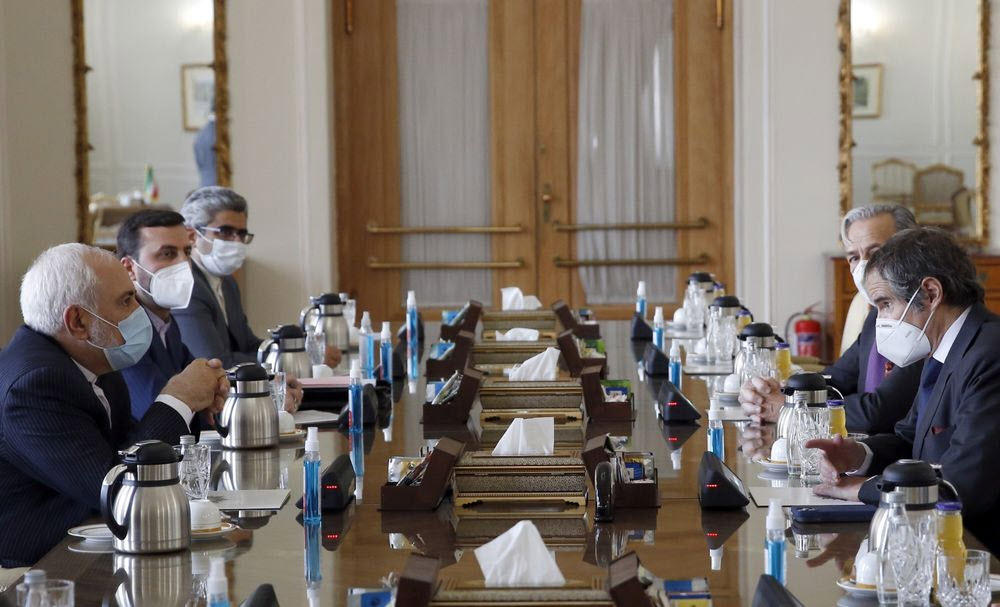Energy News Beat Publishers Note: This meeting between Iran and the U.S. will be one to watch for several reasons. The sanctions placed on Iran have been taking their toll and disrupting cash flow for the government. We have seen some of the actions taken like “Spoofing and Doping” oil shipments to get around the sanctions. Energy News Beat ran stories on these of the last 6 months following the oil production outside of the OPEC + quotas. The new 25-year energy contract with China will also be an important factor for Iran shipping outside the world production quotas.
Iran has been successful in keeping afloat through the sanctions and has put agreements in place to insulate itself from U.S. significance or influence. It is all about cash flow.
Iran and the U.S. face difficult talks as diplomats prepare their latest efforts to end a crisis over the future of the 2015 nuclear deal.
Both countries will take part in negotiations with the EU, Russia and China — the remaining parties in the landmark accord — in Vienna on Tuesday to map out a path to revive the agreement, though the two will not have any direct talks.
Tehran and Washington maintain strong differences on how to revive the deal that former President Donald Trump abandoned, with Iran insisting on full and guaranteed sanctions removal in order for Iran to scale back its nuclear activity, while Washington has ruled out any “unilateral gestures.”
State Department spokesman Ned Price said on Monday he expected the talks to be “difficult” and wasn’t forecasting any breakthroughs, adding that Robert Malley, the U.S. special envoy for Iran, would lead the talks on behalf of the Biden administration.
Earlier in the day, Iran’s Foreign Ministry spokesman, Saeed Khatibzadeh, said it was up to the other powers that are still in the deal to ensure that Washington “corrects” its path and provides the guaranteed and verifiable removal of bruising penalties on Iran’s economy imposed by Trump.
Khatibzadeh said Iran was not interested in a “step by step” approach, reiterating comments made on Sunday by his country’s lead negotiator, Deputy Foreign Minister Abbas Araghchi, who has already arrived in Vienna ahead of the talks.
Iran breached some of the limits on its nuclear program more than a year after Trump abandoned the deal that was championed by his predecessor, Barack Obama. Tehran has since repeatedly rebuffed direct talks with the Biden administration on reviving the pact.
Source: Bloomberg

